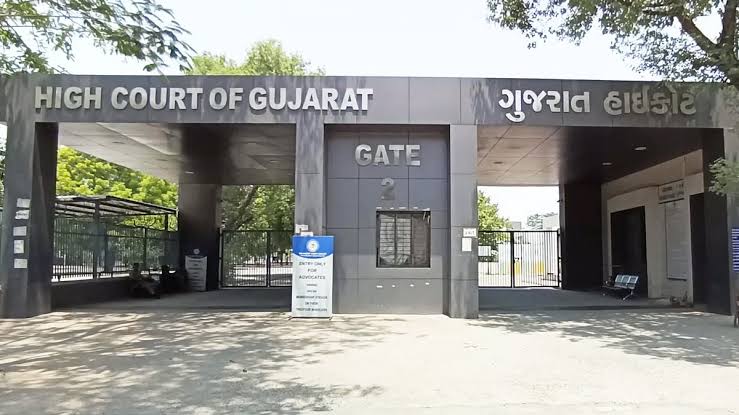The Gujarat High Court declined to grant a stay on the proposed partial demolition of the 400-year-old Mancha Masjid located in Ahmedabad’s Saraspur area, marked for road widening near Sabarmati Railway Station. The decision was announced on a Friday, following an appeal filed by the mosque’s Muttawali.
This appeal challenged a September 23 ruling by a single-judge bench that upheld a directive from the Ahmedabad Municipal Corporation (AMC). The AMC had issued a notice requiring mosque authorities to vacate a portion of the premises for a city development project.
The trust managing the mosque argued that the order and the subsequent hearing were improperly conducted, stating that the Deputy Estate Officer, instead of the Municipal Commissioner, handled the matter, thus violating the Gujarat Provincial Municipal Corporations (GPMC) Act.
The trust further contended that the mosque is a protected Waqf property that holds significant heritage value. It claimed that any demolition would not only harm its historical structure but also violate constitutional guarantees of religious freedom.
In its evaluation, the single-judge noted that proper procedures outlined in Sections 210–213 of the GPMC Act were followed, which included the issuance of notices and approval by the Standing Committee.
In response, the appellant contended that the single judge misinterpreted the provisions of both the GPMC Act and the Waqf Act. Counsel argued that the appellant’s representation against the demolition was dismissed without sufficient reasoning and that the Standing Committee had exceeded its authority.
The mosque is recognized for its historical and religious importance and is formally registered as a Waqf under the Waqf Act of 1995. The Mancha Masjid Trust has managed the mosque and its services to the community for many years.
In contrast, the Municipal Corporation asserted that due process had been adhered to and argued that objections were raised too late. They emphasized that the decision was made in the public interest to manage increasing traffic near Kalupur Railway Station and the Ahmedabad Metro junction. The civic body also noted that many other properties, including temples and residential buildings, were similarly affected by the road widening plan.
Following the arguments from both parties, the division bench, which included Justice A.S. Supehia and Justice L.S. Pirzada, remarked that the primary structure of the mosque would not be demolished. They highlighted that the road-widening initiative would impact various property types, not exclusively religious ones. Consequently, the bench found no illegality or deficiencies in the single judge’s order and dismissed the appeal.
The Mancha Masjid, believed to date back approximately 400 years, is culturally and religiously significant to the Muslim community, with its name appearing in official revenue records. It has undergone multiple renovations over centuries, maintaining its historic and spiritual importance.
Following the establishment of the Bombay Public Trusts Act in 1950, the mosque and its associated properties were officially registered under the Mansa Masjid Trust (Reg. No. B-655).
In late 2024, Gujarat’s Gir Somnath district witnessed the demolition of numerous Muslim religious sites, including places of worship and graveyards, amid allegations of violating Supreme Court orders. A petition by the Auliya-e-Deen Committee argued that the demolitions unlawfully infringed on community property rights and were executed without proper notice or sufficient time for retrieval of personal belongings.
Tags: Gujarat High Court, partial demolition, Mancha Masjid, historical site, religious heritage
Hashtags: #Gujarat #refuses #stay #partial #demolition #400yearold #Mancha #Masjid










